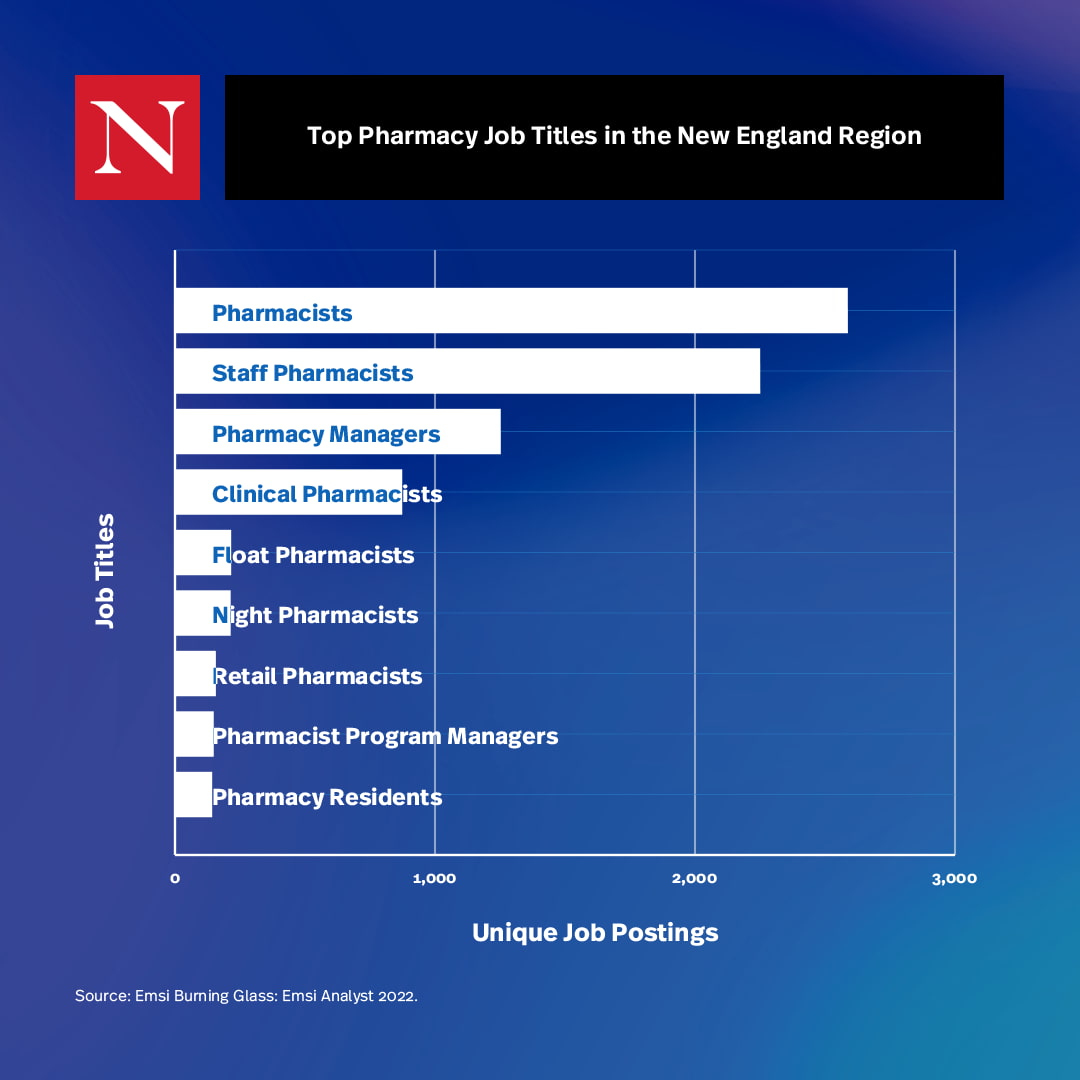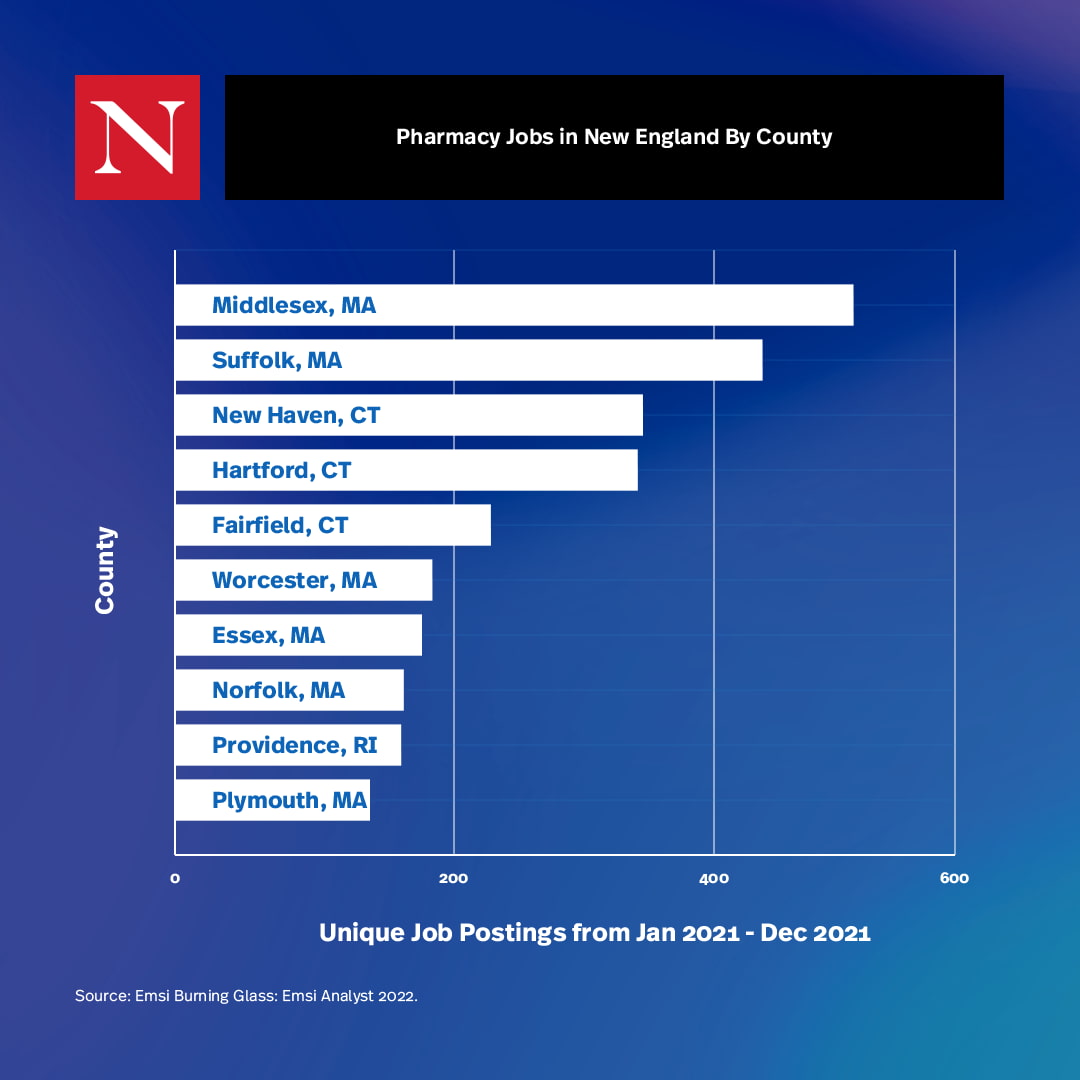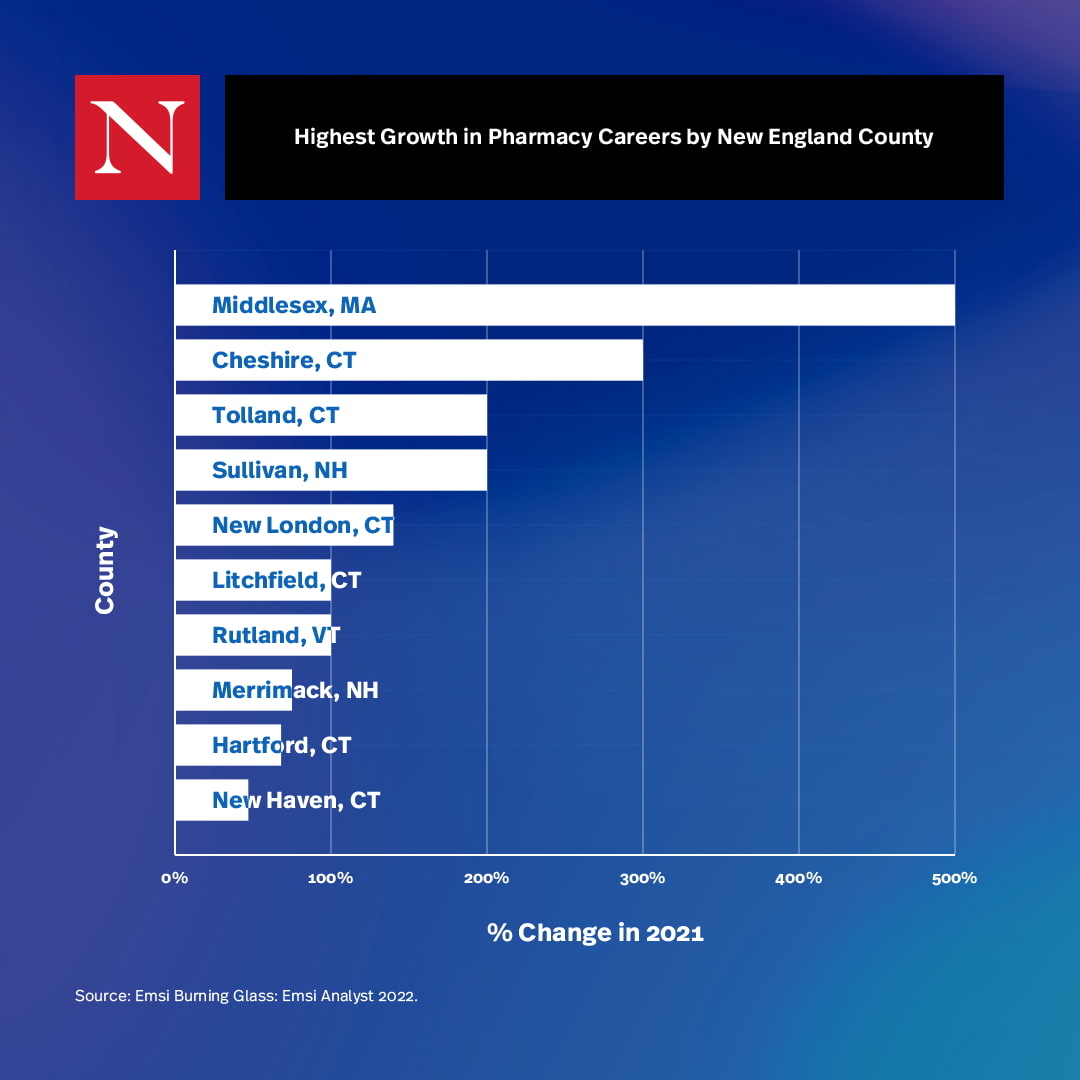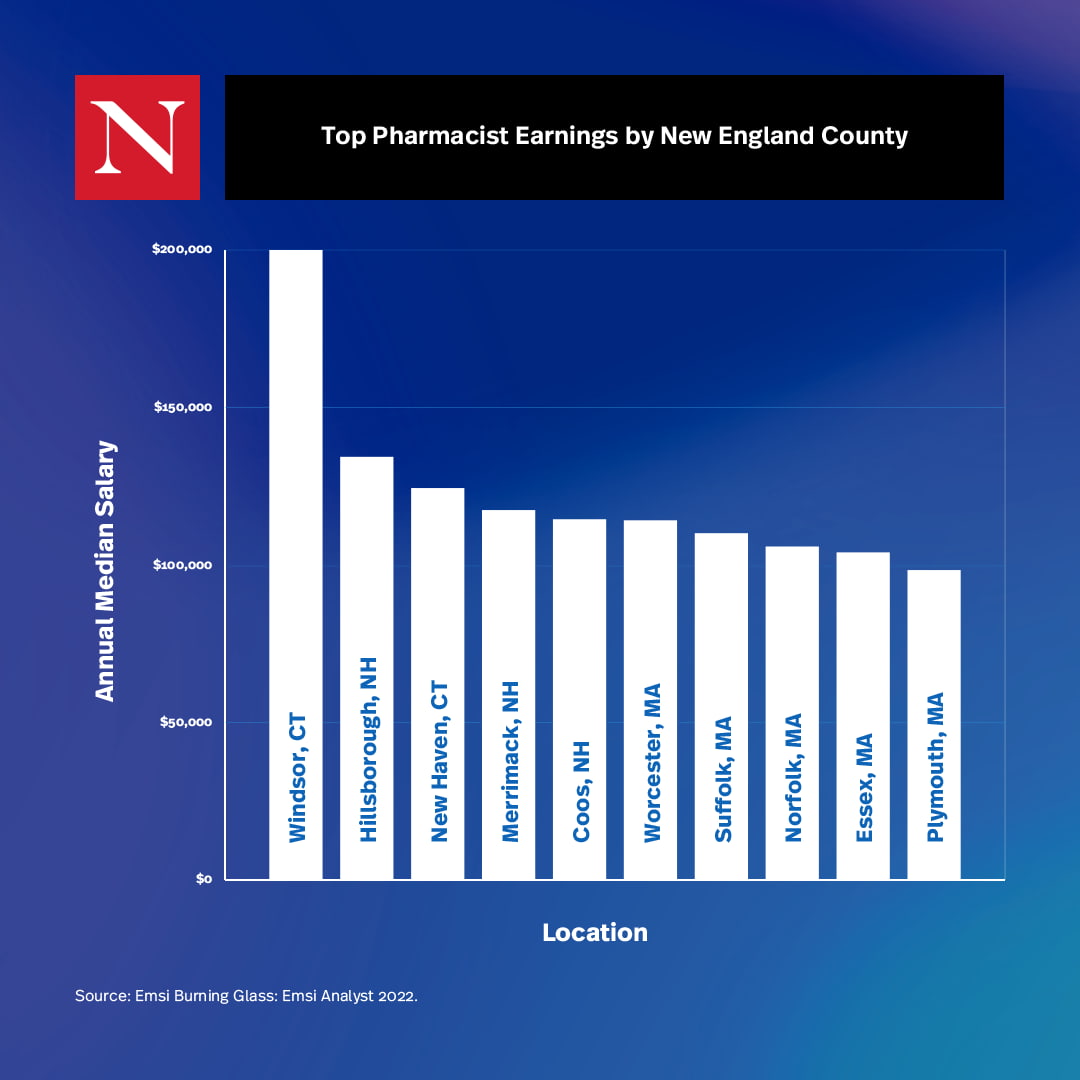A pharmacy degree can offer an abundance of career opportunities, but sometimes too many options can be overwhelming. While the majority of pharmacists work in a community pharmacy setting as independent pharmacies or large corporate chains, additional career opportunities can be found in hospitals, academia, the pharmaceutical industry, and even animal care. How do you choose which career path is right for you?
One benefit of pursuing a career in pharmacy is the control you can have over your career prospects. Knowing what opportunities exist for pharmacists, and where you can find them is an essential first step to gaining agency in your career. Here’s an overview of the top 10 pharmacy careers in the New England region, as well as which counties offer the best job prospects.
Top Pharmacy Careers
The numerous job opportunities pharmacists can pursue are one reason many opt for pharmacy as a career. Pharmacists work in a variety of settings, but often job titles overlap across industries.
In the New England region, here are the most commonly listed job titles for pharmacists in 2022.

- Pharmacists/ Staff Pharmacists: This job title is the most common in this industry. Pharmacists fill prescriptions, dispense over-the-counter medications, oversee pharmacy technicians, and interact with clients. This position is frequently found in a community pharmacy.
- Pharmacy Managers/Pharmacist Program Managers: Pharmacy managers oversee pharmacists and ensure the facility is operating smoothly and efficiently, whereas a pharmacist program manager is responsible for overseeing the pharmacy’s overarching business goals.
- Clinical Pharmacists: Clinical pharmacists are often found in hospitals working alongside various healthcare providers to promote patient care.
- Float Pharmacists: Float pharmacists move between pharmacies providing relief during vacations, maternity leaves, or other circumstances.
- Night Pharmacists: Night pharmacists work during unconventional hours to help provide around-the-clock care.
- Pharmacy Managers/Pharmacists: This job title is largely a repeat of the pharmacy manager position.
- Community Pharmacists: Community pharmacists work in independent pharmacies or large corporate settings and have similar job requirements to staff or pharmacists.
- Pharmacy Residents: Pharmacy residents are future pharmacists looking to complete their training by finishing their residencies.
Depending on their job title, pharmacists work in a variety of different locations including drug stores, grocery stores, hospitals, supermarkets, and more. And since there’s a good amount of overlap between these positions and workplaces, it’s common for pharmacists to frequently move between industries. For example, pharmacists who start their careers in community pharmacy might end up in a clinical or industry role.
Don’t fall under the impression that once you choose an industry you’re stuck there—your career can grow and evolve according to your interests. Whether you work for a private pharmacy practice or a pharmaceutical company, you’ll encounter opportunities to grow your professional career beyond your initial expectations.
Where to Look For Career Opportunities
Before you begin looking for jobs, you need to make sure you determine what your career goals are. Do you want to work where there are more jobs, growth opportunities, or higher salary potential? Make sure to establish these goals as you’re beginning to look for a pharmacy career. These considerations can also impact where you decide to obtain your pharmacy education or complete your residencies.
Pharmacy Jobs in New England By County
One option to consider when searching for a job is where the majority of openings can be found. These locations provide not only more options to choose from, but numerous opportunities to network and connect with other pharmacists.
The majority of pharmacy jobs in New England are in the Greater Boston Area in Massachusetts, specifically in counties such as Middlesex and Suffolk.
The top 10 counties in New England with the most pharmacist jobs in 2022 are:

- Middlesex County, MA
- Suffolk County, MA
- New Haven County, CT
- Hartford County, CT
- Fairfield County, CT
- Worcester County, MA
- Essex County, MA
- Norfolk County, MA
- Providence County, RI
- Plymouth County, MA
Job Growth in New England By County
While the majority of pharmacy jobs can be found in the Greater Boston Area, it has seen a decrease in job growth between 2019 and 2022. This is an important factor to consider if you’re looking to relocate for your career more long-term. In that case, looking for a job where pharmacy prospects are increasing might be a better option. The career outlook is positive in counties such as New Haven County in Connecticut and Middlesex County in Massachusetts.

Pharmacy Earnings in New England By County
A high salary is one of the many perks of a pharmacy career. However, salaries can fluctuate depending on factors including the pharmacy you work for, how much training and experience you have, and more. Location is another factor that influences your annual salary. The highest-paying New England counties in 2022 include Windsor County in Vermont where pharmacists make an average salary of $200,000, or Hillsborough County in New Hampshire with an average salary of $134,341.

Don’t make the mistake of assuming that you’ll earn a high salary just because you work in one of these counties though. Average salary is impacted by other factors such as the number of pharmacy jobs available.
Becoming a Pharmacist
Pharmacy is a rewarding career that offers many benefits. Interested in pursuing pharmacy as a career? The first step to becoming a licensed pharmacist is to obtain your PharmD degree from an accredited pharmacy school like Northeastern University’s School of Pharmacy and Pharmaceutical Sciences. Whether you have a bachelor’s degree in pharmacy or a high school diploma, there are options for you to complete this program between four to six years. Doing so will get you started on your path to becoming a pharmacist.







Related Articles
PhD vs. Master’s in Biomedical Science: What’s the Difference?
10 Top Careers in Biomedical Science
What is Medicinal Chemistry?